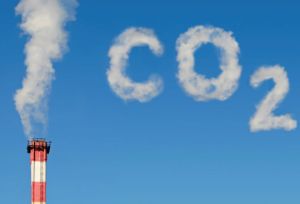Energy, EU – Baltic States, Legislation
International Internet Magazine. Baltic States news & analytics
Thursday, 25.04.2024, 11:46
EU member states approve cutting back on emission quotas
 Print version
Print version |
|---|
"Agreeing on the trade system reform is a large success for Estonia.
The updated trading system must help reduce greenhouse gas emissions quicker,
which at the same time is also useful for countries that are benefiting from
the trading, including Estonia," Estonian Minister of the Environment
Siim Kiisler said in a press
release.
The total quantity of pollution quotas will from 2021 be reduced by 2.2%
per year compared to the current 1.74%. The increased demand is expected to
also bring along price growth.
"Trading with a higher price will be directly beneficial to those
countries participating in the trading system that receive the income from the
trading. In Estonia the money received from the sale of units has been used to
support making apartment buildings more energy-efficient, adopting renewable
energy of small houses and updating heating systems as well as to contribute to
international climate cooperation," Kiisler said.
The European Commission said that amendments will help the European
Union to considerably fulfill the goals of the Paris Agreement, according to
which greenhouse gas emissions should be reduced by 40% by 2030.
"In order to avoid the moving of industry to third countries, the industry
will still partly receive a free pollution quota. The Estonian industrial
sector, for example the production shale oil, cement and paper has been
evaluated in the trading system as a sector significantly endangered by a
carbon leak and the partial allocation of free a pollution quota will continue
for them. As a Europe-wide exception, the partial allocation of a free
pollution quota to a smaller extent will continue for district heating, even
though it is not included among the sector endangered by a carbon leak,"
the minister said.
Kiisler said that free pollution quotas have not been distributed for
electricity production since 2013, which is why the electricity produced from
oil shale will in the future become more expensive with the increase in the
price of pollution quotas. "Thus, the more time passes, the more
reasonable it is to produce products with more added value from oil shale, like
shale oil, for which a partial free pollution quota can be applied," he
said.
"New financing options in the form of various funds will be created
for the next trading period in order to help the industrial and energy sector
in transitioning to a low carbon emission economy. Of course Estonia also has
the opportunity of partaking in them. Firstly, an innovation fund will be
created to support innovation in low carbon emission technologies and processes
across the European Union. Secondly, the updating of the energy sector and
energy systems in ten less wealthy member states will be supported from the
Modernization Fund. And additionally, the possibility of granting state aid for
the modernization of electricity production will continue in the ten less
wealthy member states," Kiisler said.
Approximately 11,000 European industrial companies and energy producers participate
in the trading system, including as of 2017 also 46 Estonian electricity and
heat, oil shale, cement, paper, paper mass, brick, lime and glass producers.
Now that the member states have approved the bill, it will go to a vote at
the European Parliament. The legal act will then be submitted to the Council
for final adoption.








 «The Baltic Course» Is Sold and Stays in Business!
«The Baltic Course» Is Sold and Stays in Business!

